#lse freshers
Text
How to meet people at LSE
Everyone is nervous about meeting people and making friends when they first start university. Finding the right people for you can take a lot of time and effort - or it can happen out of the blue! Here are a few ways you can be in the right place at the right time for meeting new people.
Start with your housemates
If you live in halls for your first year, this is the perfect opportunity to start socialising. It’s a good idea to invest in a doorstop - people will be sure to pop by and say hello if you seem open and sociable.
You can also decorate your room so it is warm and inviting, there is no better conversation starter than a mutual love for fairy lights…
Remember not to worry or panic if you haven’t clicked with the people living in your halls, it really is down to luck as to who you get put with, and there are plenty of other opportunities to meet people elsewhere.

Course buddies
Soon enough you will meet people on the same course as you in classes, lectures and seminars. This is a great place to start talking, as you already share a common interest. Get chatting about why you like the subject, how you’re finding the workload, or ask the dreaded question, ‘did you do the reading?’…
Join the club
I know you’ll get told this over and over, but joining societies is an excellent way to meet likeminded people. You’ll be surrounded by people who share similar interests to you, so you are very likely to meet a people you get on well with.
Whether it’s talking about something you’re passionate about, or bonding over trying a new sport, with over 200 clubs and societies at LSE, you’re guaranteed to find something that suits you. And if not, you can start your own!

Put those Facebook stalking skills to the test
If you tend to be a bit shy in person, or want to arrive at LSE with a few contacts, getting in touch with people online can be much easier than face to face. Many courses have their own Facebook groups – get chatting to your future course mates, or even suggest meeting for a coffee in the first week.
You can find the LSE undergrads Facebook group here and postgrads Facebook group here.
Say the magic word
Don’t be afraid to say hi first, you have to put yourself out there sometimes to start a conversation. In my experience, people are welcoming after you break the ice – everyone is in the same boat. If you do come across someone who isn’t particularly welcoming, remember, there’s always someone who will be.

Stay open minded
You might already have an idea of what ‘type’ of friend you look for, but don’t let that limit who you have a conversation with. LSE is a highly international university, with over 160 nationalities represented within its student body (that’s more than in the UN!)
Get ready to meet all kinds of different people; it’s amazing how much you can find in common with someone who’s lived on the other side of the world to you!

4 notes
·
View notes
Text
Top Tips for Freshers || Guide To The Best University Experience
Top Tips for Freshers || Guide To The Best University Experience
Hey hey!! In this video, I share 10 tips for incoming university students. Uni is such a great time and with these tips you can make it an even better experience and avoid common mistakes 🙂
If you are going to study at the LSE, check out my recent review of my first year at LSE: https://youtu.be/aQb6NPG-toA
also alsoooo, check out my recent budgeting video to get your finances in…

View On WordPress
0 notes
Photo

Freshers who hurled homophobic slurs in LSE group chat ‘thought it would be bants’ https://ift.tt/2G40801
0 notes
Text
Career in Investment Banking
As soon as students graduate from a business school, their main concern is to find a job that they feel secure with and one that offers adequate opportunities to grow. Businesses all over the world are dramatically changing and creating new opportunities that were not there a decade ago. But some job options have remained as reputed as they were years ago except the modern-age technologies have further added to their charm. Investment banking is one such career choice that has produced a number of industry leaders in the business. Offering lucrative salaries and a dynamic work environment, it is one of the most sought-after careers.
What is Investment Banking?
Falling in the domain of the financial services industry, Investment banking deals with managing and increasing the financial assets of clients. Investment bankers devise strategies to guide clients on investing their assets to help them increase the value of their portfolios. Investment banking is a division in financial institutions dedicated to keeping a record of investments and portfolios. Being one of the most complex mechanisms in the financial sector, investment banking deals with providing a client with financial consultancy services to help them raise their capital. The job of an investment banker includes trading, mergers and acquisitions advisory besides lending money to firms and making a business more efficient.
How can you become an Investment Banker?
When it comes to investment banking, we often like to draw comparisons with Wall Street. To cater to an entry-level job in the domain, a bachelor’s degree in Finance or Economics acts as a stepping stone. In the US, investment banks recruit directly from Ivy League colleges while as in the UK, LSE and Oxford are the premier institutions that are given the preference. Fortunately, ISBF provides the best undergraduate degrees in finance and economics that are globally recognized and curated by the leaders in the domain. The academic direction for the courses comes from the prestigious London School of Economics and the final degree is awarded by the University of London.
Once you have your undergraduate degree, you are set to launch your career as an investment banker, but to cater to a position at a reputed firm, you need to have an advanced degree and some work experience. An internship comes handy in gaining critical exposure and helps a lot in networking, which is an asset of an investment banker.
Most of the professionals, after gaining some work experience go for an MBA or a master’s degree which potentially helps them in getting higher salaries. Getting entry into top business schools is not a cakewalk. They have a rigorous selection process for their master’s programs. Having a globally recognized degree from ISBF is surely going to give your application a boost.
What are the career opportunities?
When it comes to career prospects, investment banking offers some of the most luxurious opportunities. Entry-level jobs at the top investment firms offer decent salaries while top positions can offer you a whopping amount. Though the job requires a tedious amount of work, the remuneration is equally rewarding. Top recruiters around the world include JP Morgan Chase, Goldman Sachs, Bank of America Merrill Lynch, Deutsche Bank, Barclays Capital and many more. With a salary ranging from 3 Lac to 16 Lac per annum for freshers, the job of an investment banker offers a great opportunity for growth.
0 notes
Text
Scottish universities outperform English counterparts in latest law school rankings
Oxbridge duo dominate top spots
The University of Glasgow
Scottish law schools appear to be outperforming many of their English counterparts.
This was one of the eye-catching results published this week in the 2021 Complete University Guide.
The Universities of Glasgow, Aberdeen, Edinburgh and Strathclyde feature in the top ten for law, while Dundee sits just outside in 11th position. The University of Stirling climbed four spots to round off the top twenty.
The top of the league table comes as no surprise: the University of Cambridge came first with an overall score of 100%, the highest of any institution, while the University of Oxford climbed two places in this year’s rankings to come second. London-based universities UCL and King’s College come in at third and fourth place, respectively.
Glasgow (5th), Aberdeen (6th), Edinburgh (7th) and Strathclyde (8th) come next, followed by Russell Group institution, the LSE, which has slipped three places down to ninth position. Durham University ranks in tenth place.
The rest of the top twenty features English universities (bar Dundee and Stirling). The University of Nottingham sticks with twelfth position, followed by the Universities of Exeter (13th), Leeds (14th), Lancaster (15th) and York (16th). Queen’s University Belfast finishes in seventeenth, followed by the University of Sheffield at eighteenth. The University of Bristol has dropped five places to nineteenth.
The results are based on entry standards, student satisfaction, research quality, research intensity and graduate prospects.
Secure your place: The Legal Cheek Scottish Virtual Law Fair 2020
There are some notable rises further down the power list of 103 universities. Abertay University, another Scottish uni, for example, has jumped a total of 11 places to feature 28th. The University of Sunderland has leaped 21 places to come 56th.
Today’s rankings come amid concerns that some students may defer their university places since teaching and maybe even socials such as fresher’s week(!) will move online in view of the coronavirus pandemic. One in five students plan to defer their studies, a recent study has found, costing British universities a potential £760 million blow.
Cambridge last month announced that all of its lectures, including those run by its law faculty, will be conducted online until next summer, while the University of Manchester has said its law department will deliver lectures virtually from the start of term one.
Secure your place: The Legal Cheek Scottish Virtual Law Fair 2020
The post Scottish universities outperform English counterparts in latest law school rankings appeared first on Legal Cheek.
source https://www.legalcheek.com/2020/06/scottish-universities-outperform-english-counterparts-in-latest-law-school-rankings/
1 note
·
View note
Photo


Ready for today’s Welcome Fair!!
0 notes
Text
Why Ought to You Examine Information Science?
Knowledge science is without doubt one of the most wanted career choices lately, as thousands of freshers and in addition, the skilled ones are looking for a job in this sector. Python builders are one among the very best-paid developers, notably in information Science, Machine studying, and net improvement. The craze of information science has pressured the massive Fortune 500 corporations to adopt the techniques and methodologies associated with knowledge science. It provides a high-quality course studying and gives a platform to explore how students study and the way the school can educate with modern strategies and instruments.
Data science course in Bangalore
Our corporate partners are deeply concerned in curriculum design ensuring that it meets the present trade necessities for knowledge science professionals. In response to a buyer survey by Capgemini and EFMA in 2019 in Bangalore, 60% of monetary institutions felt that Massive Data could be a competitive advantage, however solely 37% had sensible experience in managing Huge Information and nonetheless others stay of their initial section of experimenting with customer analytics.
Out of the Bootcamp, I felt very assured about my technical expertise and understanding of data science. R and Python Programming courses will help the student to study and apply information evaluation. Assessing College Students At The End Of The Course: The College students go through a total of fifty credits price of training and analysis spread over 15 to 18 programs.
Comprised of three complete and introductory online programs, this program will train you the foundational programming and statistics skills you should kick-begin a career in information science—no prior expertise vital. Data Science A-Z in ExcelR Solutions is the clear winner in terms of breadth and depth of protection of the info science means of the 20+ courses that qualified.
In Term-2, we'll cowl Python packages like seaborn, matplotlib, bokeh after which we'll transfer to Exploratory Information analysis, something that as a Knowledge Scientist you will need to do on a day-to-day basis. 59% rise is expected to be seen within the demand for Information Science in IT, Professional Services, Finance & Business Sector. We're a group of data scientists and educators who're on a mission to coach the subsequent era of analytics practitioners.
Due to this fact, it is rather important to understand what's Information Science and how can it add worth to your corporation. LSE is called a leading college on the earth for social science research with a multi-disciplinary perspective, and this program makes the individuals aware of a variety of subjects that have a look at business and management analytically and critically.
With information movement and channels rising by the day, it turns into important for businesses to learn the effectiveness of ITIL administration and discover the right strategy for data. To communicate your predictions and findings to different departments with no prior technical knowledge and use all of the expert expertise of information visualization, machine studying to make productive products that may enhance the finance of a company.
We are located at :
ExcelR - Data Science, Data Analytics Course Training in Bangalore
49, 1st Cross, 27th Main BTM Layout stage 1 Behind Tata Motors Bengaluru, Karnataka 560068
Phone: 096321 56744
Hours: Sunday - Saturday 7AM - 11PM
Click here to check our live location: Data science course in Bangalore
Check out our Data Science Interview Questions
#data science course#data science courses#data analytics course#data analytics courses#Business analytics training#business analytics courses#data science course in bangalore#data science interview questions
0 notes
Text
12 conversation starters any LSE student can use

Speaking to new people can be nerve-wracking, especially at somewhere like LSE where you will meet all kinds of different people.
However, you do have one thing in common with every single LSE student – you are all LSE students! If you use this common ground as a starting point, you’ll soon learn lots of other interesting things about your peers too, once the conversation gets going. Often getting started is the hardest part.
So here are a few conversation starters you can keep in mind if you ever feel like the conversation is running dry…
1) What course are you doing?
2) Are you excited about it/do you enjoy your course?
3) Why did you choose your course/subject - what do you like about it?
4) Did you go to the Freshers fair?
5) Have you joined any societies yet/are you planning to?
6) What did you do (over Summer) before coming to LSE?
7) Do you have many 9am lectures this term?
8) How are you finding the workload far?
9) Where are living whilst at LSE?
10) Have you settled in where you are living?
11) What’s your favourite thing about London so far?
12) Have you had a chance to explore other parts of London yet?
Obviously these can be tweaked and adapted to the social situation you are in, but if you can have a few of these in the back of your mind at any time, awkward silences will be a thing of the past.

3 notes
·
View notes
Text
An embarrassingly-cheap FTSE 250 dividend stock I’d buy today
These are tense times for holders of Bakkavor Group (LSE: BAKK) stock. Its share price has fallen 33% over the past 12 months as fears over the weak consumer landscape in the UK have intensified. Market sentiment really fell off a cliff in late February with the release of spooky full-year trading details, but I would argue that recent weakness makes it a good contrarian buy right now.
Under pressure
In that full-year release there was plenty to admire. Despite the pressures on shopper spending power Bakkavor — whose fresh produced foods can be found on the shelves of all of the so-called Big Four’supermarkets like Tesco and Sainsbury’s, as well as other major retailers like Aldi and Waitrose — still managed to raise like-for-like sales in its home territory by 1.8%.
The result paid tribute to the quality of its fresh products but there are signs that the FTSE 250 firm is starting to seriously succumb to the tough trading environment. It warned in February that “subdued consumer confidence and inflationary pressures have continued into 2019, and therefore we remain cautious and expect little improvement in underlying market conditions.” Indeed, Bakkavor said that it expected “limited growth” in its UK marketplace this year.
Turning point
It’s understandable that shareholders were minded to sprint for the exits again following that worrying commentary. The political and economic problems in Britain make things tough for the food industry, and as I type there are no signs of improvement on either front.
That said, I believe that Bakkavor’s share price could make a comeback in the coming months. In February’s update the firm said that it expected a “significant improvement” in trading during the second half of 2019 and a rise in UK turnover in response to recent contract wins in its core categories, evidence of which would put a rocket under market appetite once again.
A big deal abroad
But this is not the only reason to be optimistic. Bakkavor may be troubled at home but it’s not suffering the same misfortune abroad, territories in which its major clients include the likes of Starbucks and McDonalds. International like-for-like sales boomed 16% in 2018, reflecting changing global trends where consumers are turning their backs on frozen and long-life foods in favour of healthier, fresher products.
And the business is investing heavily to keep sales shooting higher in foreign climes, building two new factories in the US last year and three in its other white-hot growth market of China.
Because of this, City analysts are tipping Bakkavor to bounce back immediately from an expected 7% earnings decline in 2019 with a 5% rise in 2020. They predict that this will give the firm the confidence to keep paying generous dividends too (yields sit at 4.4% and 4.8% for this year and next respectively).
In spite of current troubles at home, the future remains extremely bright for the firm, an outlook I don’t feel is reflected in its dirt-cheap rating, a sub-10 forward P/E ratio. I reckon the foodie’s a great contrarian buy that could make you richer in the years ahead.
You Really Could Make A Million
Of course, picking the right shares and the strategy to be successful in the stock market isn't easy. But you can get ahead of the herd by reading the Motley Fool's FREE guide, "10 Steps To Making A Million In The Market".
The Motley Fool's experts show how a seven-figure-sum stock portfolio is within the reach of many ordinary investors in this straightforward step-by-step guide. Simply click here for your free copy.
More reading
The Tesco share price is rising: is it time to buy?
Do credit cards help you save money?
The HSBC share price isn’t the only FTSE 100 6% yielder I’d buy today
2 high-growth stocks I’d buy today
Why I’m avoiding FTSE 100 dividend stocks Sainsbury and Morrisons like the plague
Royston Wild has no position in any of the shares mentioned. The Motley Fool UK has recommended Tesco. Views expressed on the companies mentioned in this article are those of the writer and therefore may differ from the official recommendations we make in our subscription services such as Share Advisor, Hidden Winners and Pro. Here at The Motley Fool we believe that considering a diverse range of insights makes us better investors.
0 notes
Text
9 things I wish I knew before starting my law degree
It’s never too early to start thinking about your career, says LSE grad Bláithín Dockery
Starting my law degree as a fresh-faced 18-year-old I was blissfully unaware of the challenges to come. A new city, a new group of friends and a hectic academic schedule can be testing for even the most resolute of wannabe lawyers. Thankfully, I made it to the other side, graduating from the LSE in 2016 with a 2:1. Here I look back at my time during the LLB and offer some practical advice for freshers.
1. Learn how to explain concepts clearly
Studying at university is a huge change from school. Lectures are uncharted territory for many students so it may take time getting used to this new style of learning. You shouldn’t feel the need to write down everything the lecturer says. After all, what good are ridiculously detailed notes when you don’t understand the basics? You’re not expected to recite everything about a particular concept that the lecturer addressed. What’s more important is that you understand the concepts and can write about them clearly. I’d recommend finding a study method that works for you. Printing off lecture slides in advance and making brief additional notes worked for me.
2. It’s never too early to start thinking about your career
Law firms now offer a range of opportunities for first year students, including insight schemes and open days. Take advantage of these. Not only will they help you get a head-start when it comes to building your legal CV, but you can also get a feel for different law firms and work out which best suits you.
3. Get involved in societies
As well as being a great place to meet like-minded people, getting involved in societies helps to build soft skills. Taking on a position of responsibility will help you demonstrate specific skills when it comes to vacation scheme applications. This doesn’t mean that you have to be president of the law society — being captain of a sports team or secretary of a society will help hone equally important skills, such as leadership, organisation, and commitment. If your heart is set on the law society (which tend to recruit from the second year onwards), why not offer your assistance and help out with things such as promotion for an event. This early experience will give you an advantage when later applying for a position in the society.
4. Don’t be afraid to ask for help
Most of you will not have studied law at A-level and so most topics will be completely new. Students with a background in history or politics may find there is some cross-over in modules such as public law. As my background was in science I particularly enjoyed medical law and intellectual property modules as they covered concepts and issues I was familiar with. However, I felt slightly out of my depth during public law lectures. If you do find yourself struggling, it’s important to make use of the office hours provided by your lecturers and tutors and not be afraid to ask questions — no matter how basic. If after doing so you have trouble with the explanations provided, it may help to ask another tutor or even your peers.
5. Sleep is vital
Freshers week is exhausting, as I learnt from personal experience. Going out every night and meeting new people every day can make it difficult to sleep well. This tends to have a knock-on effect on your ability to concentrate in those all-important first few lectures. I caught myself nodding off on more than one occasion! I felt as if I was playing catch up and when topics became more complex, I found it difficult to focus since I had missed explanations of the basic concepts. Although I understand ‘FOMO’, I would suggest taking a break from the partying and getting some much-needed shut-eye.
6. Commercial awareness is important
Make sure you keep up to date with the news. Doing so will get you into a good habit early on and is useful for applications. News reports tend to get straight to the point and don’t take nearly as long to read as journal articles. I found reading the news particularly beneficial in my medical law module. The recommended additional reading would often include complex technical articles which would take me hours to read in depth. By keeping up to date with relevant news stories, I found a quick and easy way to grasp these technicalities and elevate the standard of my work.
7. If you don’t enjoy a module, find a way to make it fun
The stereotype that law is a ‘dry’ subject does hold some truth. Some topics in compulsory modules can be plain dull, but don’t give up on them. Instead, take a look at additional resources. YouTube videos are a great supplementary resource, covering a breadth of topics from criminal law to public law.
8. Make time for yourself
Law aside, university can be overwhelming. For those living in halls, it can feel as if there is no escape and having a moment’s calm may seem like a fantasy. In those first few months life at uni is definitely full on so take some time out so that you don’t burn out. Go to the gym, play an instrument or meditate — do what works best for you.
9. It’s not all dog-eat-dog
The idea that law students are all just looking out for themselves doesn’t have to be true. Yes, many of your peers will be competing for training contract places, but don’t freeze each other out. All law students should have a support network where they can help others, such as a law clinic or even a WhatsApp group! By having such a network, you can pool your resources and keep each other informed about events and networking opportunities.
Bláithín Dockery completed a law degree at LSE and is now studying a BSc in medical biosciences at Imperial College London. She hopes to secure a training contract and later specialise in intellectual property or life sciences.
The post 9 things I wish I knew before starting my law degree appeared first on Legal Cheek.
from All About Law https://www.legalcheek.com/2018/08/9-things-i-wish-i-knew-before-starting-my-law-degree/
0 notes
Text
9 things I wish I knew before starting my law degree
It’s never too early to start thinking about your career, says LSE grad Bláithín Dockery
Starting my law degree as a fresh-faced 18-year-old I was blissfully unaware of the challenges to come. A new city, a new group of friends and a hectic academic schedule can be testing for even the most resolute of wannabe lawyers. Thankfully, I made it to the other side, graduating from the LSE in 2016 with a 2:1. Here I look back at my time during the LLB and offer some practical advice for freshers.
1. Learn how to explain concepts clearly
Studying at university is a huge change from school. Lectures are uncharted territory for many students so it may take time getting used to this new style of learning. You shouldn’t feel the need to write down everything the lecturer says. After all, what good are ridiculously detailed notes when you don’t understand the basics? You’re not expected to recite everything about a particular concept that the lecturer addressed. What’s more important is that you understand the concepts and can write about them clearly. I’d recommend finding a study method that works for you. Printing off lecture slides in advance and making brief additional notes worked for me.
2. It’s never too early to start thinking about your career
Law firms now offer a range of opportunities for first year students, including insight schemes and open days. Take advantage of these. Not only will they help you get a head-start when it comes to building your legal CV, but you can also get a feel for different law firms and work out which best suits you.
3. Get involved in societies
As well as being a great place to meet like-minded people, getting involved in societies helps to build soft skills. Taking on a position of responsibility will help you demonstrate specific skills when it comes to vacation scheme applications. This doesn’t mean that you have to be president of the law society — being captain of a sports team or secretary of a society will help hone equally important skills, such as leadership, organisation, and commitment. If your heart is set on the law society (which tend to recruit from the second year onwards), why not offer your assistance and help out with things such as promotion for an event. This early experience will give you an advantage when later applying for a position in the society.
4. Don’t be afraid to ask for help
Most of you will not have studied law at A-level and so most topics will be completely new. Students with a background in history or politics may find there is some cross-over in modules such as public law. As my background was in science I particularly enjoyed medical law and intellectual property modules as they covered concepts and issues I was familiar with. However, I felt slightly out of my depth during public law lectures. If you do find yourself struggling, it’s important to make use of the office hours provided by your lecturers and tutors and not be afraid to ask questions — no matter how basic. If after doing so you have trouble with the explanations provided, it may help to ask another tutor or even your peers.
5. Sleep is vital
Freshers week is exhausting, as I learnt from personal experience. Going out every night and meeting new people every day can make it difficult to sleep well. This tends to have a knock-on effect on your ability to concentrate in those all-important first few lectures. I caught myself nodding off on more than one occasion! I felt as if I was playing catch up and when topics became more complex, I found it difficult to focus since I had missed explanations of the basic concepts. Although I understand ‘FOMO’, I would suggest taking a break from the partying and getting some much-needed shut-eye.
6. Commercial awareness is important
Make sure you keep up to date with the news. Doing so will get you into a good habit early on and is useful for applications. News reports tend to get straight to the point and don’t take nearly as long to read as journal articles. I found reading the news particularly beneficial in my medical law module. The recommended additional reading would often include complex technical articles which would take me hours to read in depth. By keeping up to date with relevant news stories, I found a quick and easy way to grasp these technicalities and elevate the standard of my work.
7. If you don’t enjoy a module, find a way to make it fun
The stereotype that law is a ‘dry’ subject does hold some truth. Some topics in compulsory modules can be plain dull, but don’t give up on them. Instead, take a look at additional resources. YouTube videos are a great supplementary resource, covering a breadth of topics from criminal law to public law.
8. Make time for yourself
Law aside, university can be overwhelming. For those living in halls, it can feel as if there is no escape and having a moment’s calm may seem like a fantasy. In those first few months life at uni is definitely full on so take some time out so that you don’t burn out. Go to the gym, play an instrument or meditate — do what works best for you.
9. It’s not all dog-eat-dog
The idea that law students are all just looking out for themselves doesn’t have to be true. Yes, many of your peers will be competing for training contract places, but don’t freeze each other out. All law students should have a support network where they can help others, such as a law clinic or even a WhatsApp group! By having such a network, you can pool your resources and keep each other informed about events and networking opportunities.
Bláithín Dockery completed a law degree at LSE and is now studying a BSc in medical biosciences at Imperial College London. She hopes to secure a training contract and later specialise in intellectual property or life sciences.
The post 9 things I wish I knew before starting my law degree appeared first on Legal Cheek.
from Legal News https://www.legalcheek.com/2018/08/9-things-i-wish-i-knew-before-starting-my-law-degree/
0 notes
Text
If anyone is going to LSE in September as a fresher and wants to be in my group chat DM me/send me an ask and I can add you!
0 notes
Photo
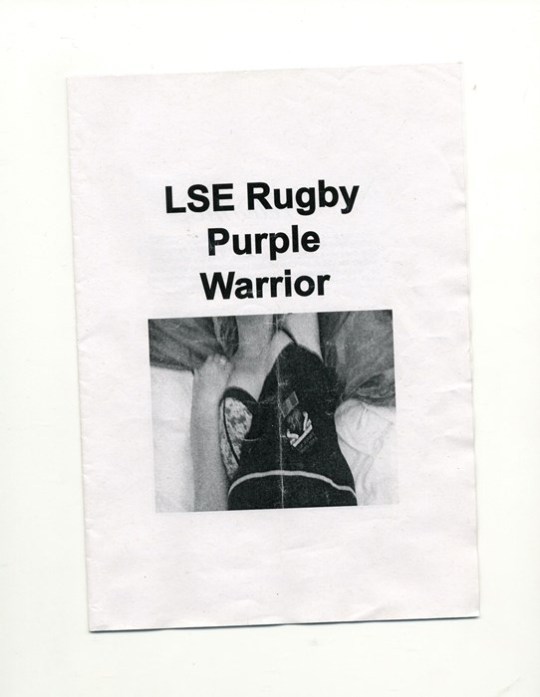
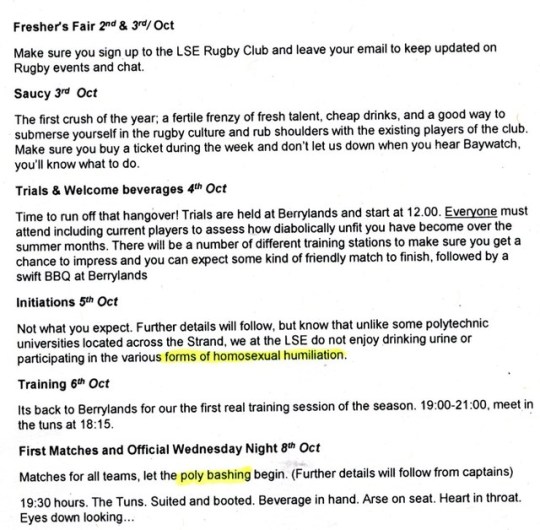



In 2014, on the 3rd of October, these leaflets were distributed by the LSE Men’s Rugby team at the Freshers Fair.
0 notes
Photo
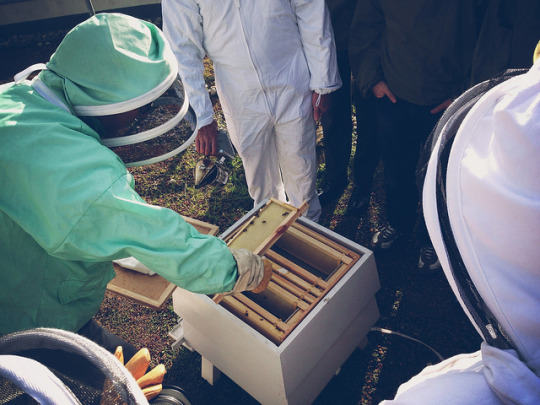
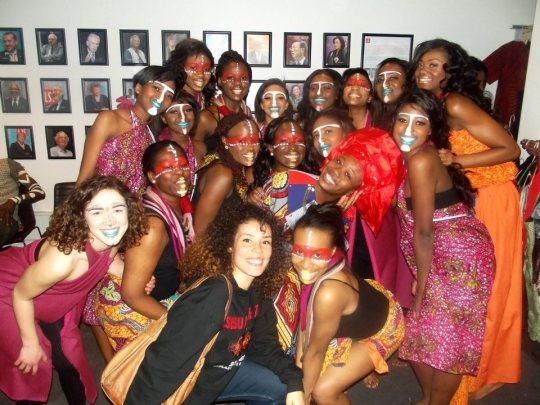








LSESU has an incredible number of societies, over 180, which means you'll always find something that appeals to you. The societies are the best way to meet people and also provide an opportunity to get involved in LSE, the local community and also global issues which can be discussed with important speakers and other students.
The societies at LSESU are not limited to business, finance and careers societies, there are an amazing number of music, national and cultural, religious and faith, political and campaigning, media and finally charity based societies which allow you to get creative and do the things you enjoy.
How to get involved
Check out the LSESU website for information here. Once you've had a look online you can search for the societies on Facebook, this will give you an idea of the sort of events and socials these societies hold.
Freshers Fair
Freshers fair is going to be on the 3rd and 4th October, when you're there, check out the societies and sign up right there and then.
Keep up to date
Make sure you check out the LSESU orientation page here and join the LSESU OFFICIAL FACEBOOK PAGE here for undergrads and here if you're a Postgrad
3 notes
·
View notes
Text
How to meet people and make friends this year at LSE

Welcome to LSE! The first couple of weeks at LSE are a pretty nerve-wracking time for most, especially when making friends with people you don’t know. The first thing to remember, as an incoming student, is that practically everyone is in the same position as you. You might find that finding the right friends can happen totally out of the blue or, in some cases, that it actually takes more time to figure out what kinds of friendships you want to build.
So, whether you’re based in London, somewhere else in the UK or even overseas – here are a few ways you can start mingling and begin making friends at LSE!
*Reminder: Please note that with the following recommendations, you should remember to follow the most up-to-date COVID-19 guidelines on social distancing. It is important for all of our students to follow the latest reccomended advice for keeping safe, especially those who are at a high risk. It may be that you will need to follow the governments advice in relation to your ability to participate in various activities listed here. To find out if you fall into a high risk category and for more information about the precautions you should take, please click here.
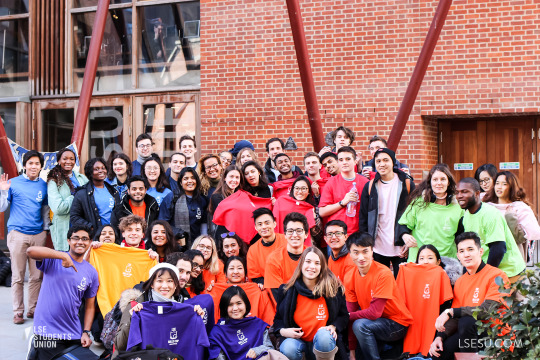
Start with your housemates/flatmates...
University halls are a perfect environment to begin socialising as you will be living among quite a large student community. Like you, everyone is in a new place, trying to find their bearings and most importantly, trying to make friends. Most people start making friends in halls as you will all be living in the same building and (depending on your halls catering) cooking and/or eating with them!
Similarly, if you are living in intercollegiate University of London (UoL) halls, you will be able to meet an even wider range of students from other universities!
The same goes for private accommodation or rented houses. Remember – regardless as to what property you’re in, people will be just as keen as you to make new friends, so you can also try conversating in common spaces like the canteen or the kitchen as long as you are at a safe distance.
If you’re invited to something, whether it be a socially distanced gathering in the park or walk into the city – you should at least consider going along (if you feel comfortable). Indeed, there may be some situations or activities that you might not always be able to partake in (like with those from other households), but if you are able, even popping along for a short while will be a good opportunity for you to start mingling with people.
Don’t worry or panic if you don’t click right away with the people living in your accommodation, it is really quite down to luck as to who you get put with, and – as we’ll show you – there are plenty of other opportunities to meet people elsewhere!
… and with your classmates
If you’re a commuter or living away from London, don’t worry – we’re about to go through all the other ways that you guys can find new people! Online learning may present a new dimension to making friends in lectures and seminars, but it’s still possible to build connections with your peers. At the end of the day, this is a really great place to start reaching out to people, as you already share a common interest!
Firstly, you'll need to find an appropriate way to contact them. There are many ways to find your peers - you can ask them yourselves if you have group work or seminars with them, you can also try asking your department if they can assist you. Try posting in the LSESU Facebook Community Groups (Undergrad, Postgrad, PhD, Freshers, International Students, BME Students) to see if any of your course mates are in there too - we've put the links for these at the bottom of this blog post.
Already sharing a common interest, it will be pretty easy to strike up a conversation - for instance, why you chose to study the subject, how you're finding the course and, the dreaded question‚ "did you do the readings?". Most academic departments organise some form of a welcome party or social event, which of course will probably be digital this year, and this is a really good way to start meeting people on your course and in your department.
From general conversation starters, you'll find that conversations will naturally flow into other topics regarding student life:
What halls or accommodation are they staying at?
Which Welcome events are they attending?
What societies or clubs are they interested in joining?
This way, you'll have something non-course related to reference back to next time you chat to them.
Got a break in between classes? Why not suggest having a virtual lunch with some of your course mates who have the same schedule? Lunch or dinner breaks are great for really getting to know your course mates. Plus, if you have peers who are scattered across the globe, it may be a nice way to start gaining insights into the different cuisines, cultures and lifestyles that you all lead.
Generally, social media (Facebook, WhatsApp, Instagram etc) is a great way to connect with your course mates, develop friendships outside of contact hours, throw around a bit of banter and even catch up on anything you may have missed in classes. If one hasn't been created already, you could try and set one up with the people you have already introduced yourself to.
Get yourselves along to the “virtual” events
With everything going digital at the moment (our events calendar included), it’s even easier to get yourselves along to some of our Welcome events as well as the events held by our student groups. We won’t go into this one in too much detail, but rest assured that the recent changes haven’t stopped us from whipping up a calendar of events for you to join!
Make sure you’re signed up to our Welcome Mailing list for all the latest updates on the official LSESU Welcome Events calendar. Read more about the sorts of events you can expect in your first term in our latest blog – Your guide to: Events at LSESU.

Join clubs and societies!
So, we’ve probably said this so many times already, but it is really true – joining societies and clubs is an excellent way to meet like-minded people! LSESU boasts more than 200 societies, well over 50 sports clubs, and 4 student media groups. These groups cover a range of special interest, faith & cultural, careers, arts & performance, charity, campaigning & political and academic interests. So, we’re pretty sure that you’ll going to find at least one society that takes your fancy!
For many, being part of a student group for special interests can be like having a second home. You’ll be surrounded by people who share similar interests, similar cultural backgrounds, and unique skillsets as you. The best part is, you can join these communities digitally as membership can be bought from our website.
In addition to being able to meet like-minded people, every society, club or media group comes with its own social life which you can also become a part of. Besides career panels and special guest lectures, societies play a key part in students’ social lives as the committees frequently organize a wide range of socials, trips, and get togethers – so there is bound to be a society-held events that suits your fancy!
Whether it’s talking about something you’re passionate about, or bonding over trying a new sport, you are guaranteed to find something that suits you among the 200+ LSESU student groups. If you are still not sure and want to start up a society of your own, we’ll even give you the support to start your own!
Facebook is your best friend
If you want to start at LSE with a few pre-made contacts, getting in touch with people online can be a much easier to make friends.
We at LSESU manage a number of Facebook Community Groups where you can connect with students before your arrival at LSE. Of course, you will have to confirm your full LSE course and year of study to be accepted into the groups, so that we can keep these groups purely for student and LSESU communication, and to keep out those dodgy promoters and housing companies that we all hate. Below are the links to our Facebook Community Groups:
The Official LSE Undergraduate Community
The Official LSE Postgraduate Community
The Official LSE International Student Community
The Official LSE BME* Student Community
The Official LSE PHD & MPhil Community
The Official LSE Freshers Community 20-21
Many courses have their own Facebook groups and so do most of the halls of residence – so you can get chatting to your future course mates and neighbours, and even begin suggesting some meetups during the first week.

Our last pieces of advice …
Say the magic word
Don’t be afraid to say ‘hi’ first. Sometimes, you’ll find that you will have to put yourself out there to start a conversation, even if it means stepping outside your comfort zone. People are probably just as friendly and eager to make friends as you are, you it’s just a matter of breaking the ice (remember - everyone is in the same boat)!
Stay open-minded
You might already have an idea of what ‘type’ of friend you are looking for, but don’t let that limit who you have a conversation with! LSE is a highly international university, with over 160 nationalities represented within its student body (that’s more than the United Nations!)
So, get ready to meet all kinds of different people from all over the world; it’s amazing how much you can find in common with someone who’s lived on the other side of the world to you! Stay open minded, listen, be welcoming, and you could find yourself some life-long friendships during your time here.
2 notes
·
View notes